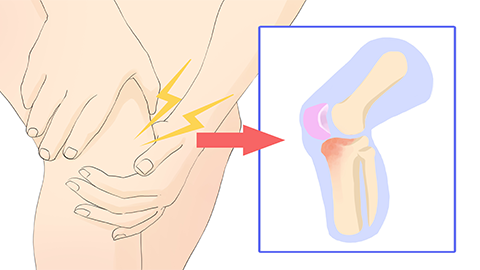What are the early symptoms and signs of bone metastasis in lung cancer?
Early symptoms and signs of bone metastasis from lung cancer may include bone pain, fractures, fever and fatigue, weight loss, restricted movement, and other symptoms. If any abnormalities occur, timely medical consultation is recommended. Detailed analysis is as follows:

1. Bone Pain: This is one of the common early symptoms of bone metastasis from lung cancer. When lung cancer cells invade the bones, they can cause localized or widespread pain. This pain is usually a persistent dull ache or a drilling pain, which may worsen with changes in body position. The pain may be concentrated in the back, ribs, spine, pelvis, or other bones.
2. Fractures: Because the tumor erodes the bones, making them fragile, patients with bone metastasis from lung cancer are prone to pathological fractures—that is, fractures that occur without obvious trauma. These fractures can cause severe pain and restricted movement. They commonly occur in the spine, pelvis, ribs, and other areas.
3. Fever and Fatigue: Patients with bone metastasis from lung cancer may develop irregular low-grade fever, sometimes accompanied by night sweats. This may be due to an inflammatory response caused by tumor necrosis or an immune response to cancer cells. Additionally, because cancer cells consume the body's energy and may cause symptoms such as anemia, patients may also feel tired and weak. This fatigue may worsen with activity and cannot be relieved by rest.
4. Weight Loss: The rapid proliferation of malignant tumor cells can cause protein catabolism to exceed anabolism in the body, leading to a negative nitrogen balance and subsequent weight loss. Patients with bone metastasis from lung cancer may experience unexplained weight reduction.
5. Restricted Movement: Bone metastasis from lung cancer may cause local muscle atrophy and joint stiffness, making certain movements difficult or painful, such as walking, bending, or extending limbs. Additionally, fractures and pain can limit the patient's mobility, further affecting quality of life.
Patients suspected of having bone metastasis from lung cancer should undergo imaging and laboratory tests as early as possible to confirm the diagnosis and formulate an appropriate treatment plan. Treatment options may include radiotherapy, chemotherapy, targeted therapy, immunotherapy, and the use of bone density-enhancing agents to control tumor progression, alleviate symptoms, and improve quality of life.




